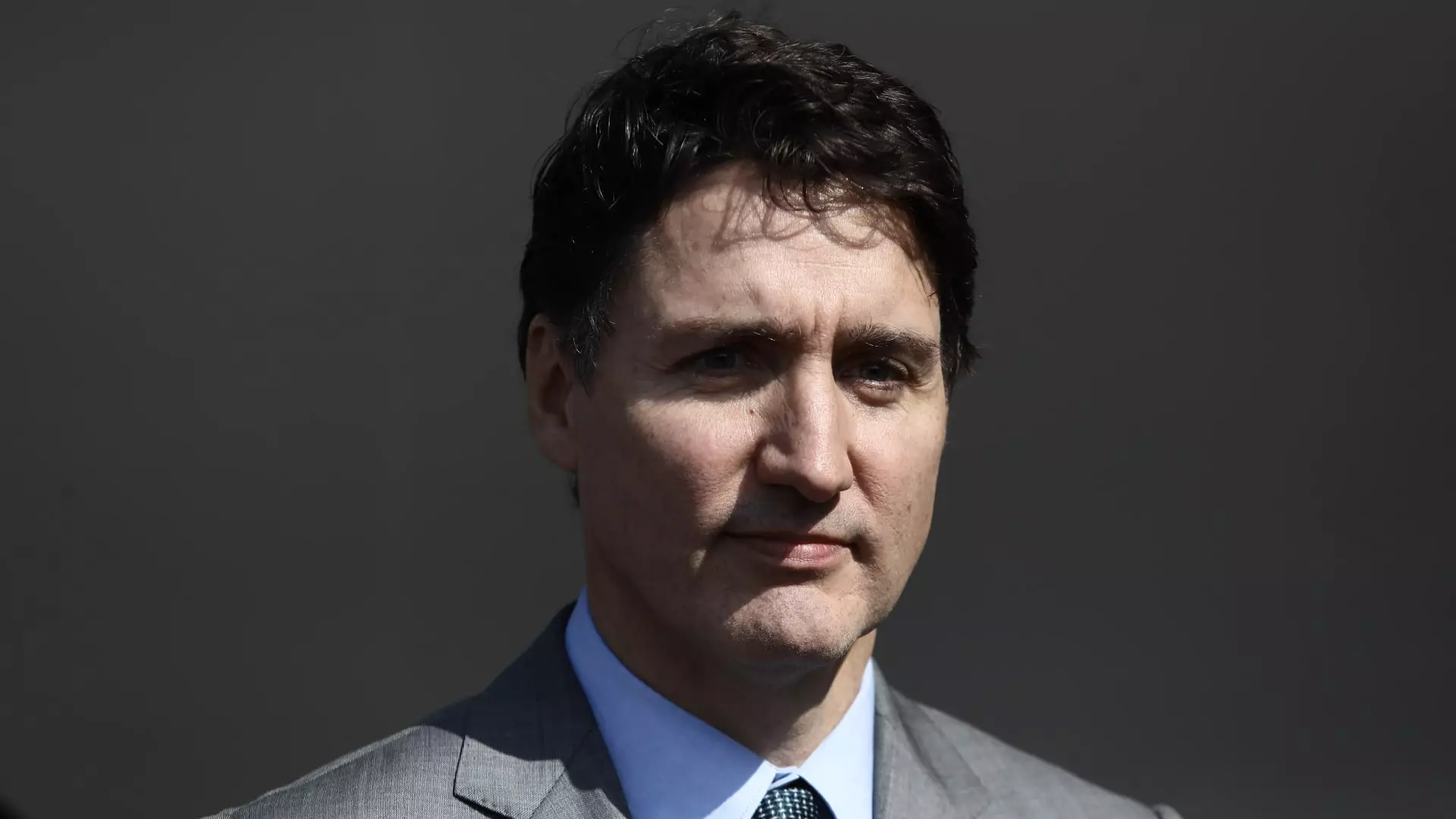In the shifting landscape of Canadian politics, speculation surrounding Prime Minister Justin Trudeau’s potential resignation is intensifying. Although he has yet to announce any formal decision, sources suggest that Trudeau is leaning towards stepping down as the leader of the Liberal Party. This comes at a crucial juncture when Canada is bracing for an election that could be unfavorable for the Liberals, logging substantial discontent in public opinion surveys. A host of party members are reportedly pushing for him to reconsider his leadership as dissatisfaction mounts.
The situation is dire for the Liberals as Trudeau nears a critical point of decision-making. As the ruling party prepares for an impending election, the question remains: can they maintain cohesion amid rising pressure? The growing unrest within the ranks, fueled by polling data revealing a potential defeat against the Conservative opposition, has intensified calls from Liberal parliamentarians for new leadership. Notably, Trudeau’s office has remained tight-lipped on these issues, leading to a climate of uncertainty about the Prime Minister’s intentions.
This internal party pressure exposes a divide in strategy and aspirations among Liberal legislators. Some party members advocate for a fresh face to lead the charge, while others hope Trudeau will hold onto power until a successor is chosen. In the meantime, crucial meetings are slated for the coming days to discuss the party’s future direction, potentially signifying a watershed moment in Canadian politics.
The Burden of Governance
Trudeau’s journey as Prime Minister began in 2015 when he assumed leadership of a party that had been relegated to third place. At that time, he rejuvenated the Liberal brand with promises of hope, progressive policies, and a commitment to addressing societal issues like gender equality and climate change. However, the challenges of governance, especially during unprecedented times like the COVID-19 pandemic, have proven to be particularly burdensome. With the government engaging in substantial fiscal measures to bolster an economy battered by the pandemic, public sentiment has turned sour amid soaring inflation and increasing costs of living.
The Liberal government has faced criticism for its heavy spending, and while the fiscal stimulus was aimed at providing short-term relief, it has inadvertently contributed to deeper economic worries. Voter dissatisfaction has partly stemmed from a perceived inability to effectively manage rising prices and housing issues, as well as a series of policy missteps. For instance, immigration policies that led to a surge of arrivals have placed additional pressure on an already strained housing market, alienating constituents who are feeling the pinch.
For Trudeau, the specter of resignation is complicated by recent tensions within his cabinet—most notably his failed attempts to rein in Finance Minister Chrystia Freeland. When she resisted proposed austerity measures, it prompted a deterioration in their working relationship, culminating in her departure from the post. Her resignation sent shockwaves throughout the party, signifying a fracture in what had been a once-strong alliance. The situation raises an essential question: can the Liberals present a united front with such internal strife as they approach a key electoral moment?
Trudeau’s leadership style—once lauded for its approachability and charisma—is now facing scrutiny as polls reflect a wavering public trust. The vibrant “sunny ways” that characterized his ascent feel overshadowed by the stark realities of political governance. As public approval wanes, Trudeau must reassess his priorities, as well as the strategic trajectory of the Liberal Party.
Anticipating the Future
As speculation swirls about Trudeau’s potential resignation, it remains paramount to understand the broader implications for the party and Canadian politics as a whole. Should he step down before a leadership race is initiated, it could create a vacuum of power, sparking a contentious election cycle. Key figures like Finance Minister Dominic LeBlanc are reportedly being considered as interim leaders, but their involvement may hinge on their intentions regarding the leadership role.
In a political climate fraught with complexity, Trudeau’s fate will likely be a significant determinant of both his legacy and the future of the Liberal Party. Whether he will boldly navigate the challenges ahead or opt for retirement from frontline politics remains a decisive turning point in Canada’s political narrative. For now, the eyes of the nation are focused intently on Trudeau’s next moves, as the results could echo throughout the political landscape for years to come.

Leave a Reply